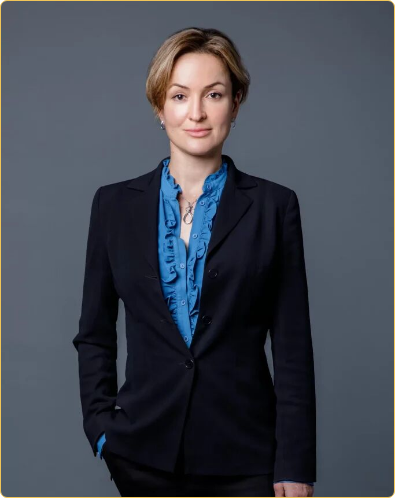Wills, Estate and Succession Planning Lawyers
At Shore Lawyers, we take pride in being recognised as one of the leading law firms offering exceptional services for Wills and Estates in Sydney. Our dedicated team specialise in Probate, Letters of Administration, Wills, Powers of Attorney, Appointments of Enduring Guardians, Trusts, and Estate Planning. We understand that dealing with matters involving bereavement and death can be emotionally challenging, which is why we approach each matter with empathy, sensitivity, and the utmost professionalism. If you’re looking for the best will and estate lawyers in Sydney, Shore Lawyers is here to provide personalised solutions for your legal needs. Contact us today and let our expertise guide you through this difficult time.
Our wills and estate planning expertise
Family Provision Claims, Probate and Estate Litigation
If you have been left out of a will – you may have a claim against the estate - we can help you through the process of challenging the will.
We are expert in assisting you in bringing a claim against the estate. Our team of Wills and Estate Lawyers are experienced in all matters relating to estate litigation and approach all situation with sensitivity and care.
Sometimes a Will fails to provide for family members or dependants of the deceased or the provision left is completely inadequate to cater to the needs of a beneficiary. In that case, you may have a legitimate claim against the Estate to seek that provision be made from the Estate for your maintenance, education and advancement in life.
Sometimes the deceased is under the influence of someone who takes them to make a Will that does not reflect true wishes of the testator; or the deceased lacks the requisite legal capacity. If you believe this has happened, you may have a basis to challenge the Will. Please call us to make an appointment to discuss.
Grant of Probate or Letters of Administration
A grant of probate or letters of administration confirms the executor’s right to distribute the estate property in accordance with the Will or the law in the absence of a Will.
A Grant of Probate or Letters of Administration must be obtained if the deceased owned real property (house/land) or if a Bank or other authority requests one to release the assets of the deceased to the Executor. Obtaining such Grant requires the filing of an application with the Supreme Court. The filing fee is charged according to a legislated scale.
Estate property is generally available to be distributed to the entitled beneficiaries within 6 months from the date of death of the deceased or 30 days from the date of publication of the Notice of Intended Distribution of the Estate, whichever is later. Estate administration may be complicated when there is a Testamentary Trust in place, particularly if such Trust is intended to be on-going after the passing of the deceased, with residuary beneficiaries taking the balance of the Trust property when the main purpose of such Trust is fulfilled. Our experienced Probate staff have assisted many Executors with the administration of Estates. Please call us to discuss whether you need to obtain a Grant of Probate or Letters of Administration.
Enduring Guardianship
Appointment of an enduring guardian provides for a person to make lifestyle, health and medical decisions for you when you are not capable of doing this for yourself.
Your Enduring Guardian may make decisions such as where you live, what services are provided to you at home or at the hospital and what medical treatment you receive. An appointment of Enduring Guardian usually comes into force when you do not have capacity to make decisions for yourself. Enduring Guardianship can also be used to give advanced healthcare directions in critical medical situations that you would otherwise not be in a position to give due to lack of ability to do so.
If there is no such instrument at a critical time, it may be that a third party will be making decisions which would be contrary to your interests. Often clients have to resort to NCAT proceedings to be able to apply for care of their loved ones. Unfortunately, they are not always successful due to the stringent requirements of that jurisdiction. We understand that such uncertainty and unnecessary expense should be avoided.
We provide expert advice to our clients on appointing an Enduring Guardian.
Call us today to discuss appointing a Guardian. We offer a discount for preparation of an Enduring Power of Attorney together with Enduring Guardianship.
Succession Planning & Tax
It is important to consult with succession and estate planning lawyers and financial planners to create a tax savvy succession plan.
Succession Planning is the process of identifying and preparing individuals to take over key roles and responsibilities within an organisation or family business. It is crucial for individuals and businesses to have a well-thought-out succession plan to ensure continuity, develop and support talent in an organisation or family environment, mitigate risks and provide a level of asset protection. In relation to a business, succession planning also allows for retention of employees and smooth transition of leadership. Succession planning can have tax implications for both the organisation and the individuals involved, including Estate and gift taxes, capital gains tax, real and personal property transfer taxes, including stamp duty. Consulting with a tax professional can help identify the most tax-efficient structure for succession planning. We will work closely with your tax advisor to achieve the best possible outcome for you while guiding your through the legal complexities of effective succession planning. Call us today to enquire about our services.
Wills, Codicils and Testamentary Trusts
Our team of experienced solicitors knows the importance of having a well-drafted will that is kept up-to-date.
In the absence of professional advice when preparing a Will, there is a risk that the Will may not comply with the law and may not be valid. In certain situations an application to the Supreme Court may be made for a statutory Will to be put in place. Issues that must be addressed to achieve a testator’s objective in the Will can cause extra work for executors, and the Estate incurring legal fees to clarify ambiguities or your Will being declared invalid, resulting in an intestacy.
As experienced litigators, we have seen the issues that are often contested in courts over Wills that do not comply with the law (including the use of DIY Will Kits), and we have the expertise to navigate these pitfalls.
For elderly or disabled clients, we can come to your home or another suitable location. If required, we can engage with your doctor to ensure that proper documentation is prepared. Call us today, to make an appointment to draft your Will.
Enduring Power of Attorney and General Power of Attorney
Enduring power of attorney is created with the intention that it will stay in effect if you become mentally incapacitated or otherwise unable to make decisions on your own behalf.
This legal document gives you a peace-of-mind, knowing that someone you trust, such as a family member or a good friend, can take care of your financial affairs should you not be able to, on a particular occasion or some time later in your life.
A general power of attorney may be used for a limited purpose, e.g. if you travel overseas and need assistance in Australia to deal with your assets.
Should you lose capacity, your appointed attorney can go to the bank, pay your bills, and sell your property, if needed, to take care of you.
An attorney must only act in your best interests and cannot legally use your assets for their own benefit.
Make an appointment today, with one of our lawyers to complete your Enduring Power of Attorney or General Power of Attorney, in accordance with your requirements.
Trusts
Trusts (Discretionary, Fixed or Hybrid) are a useful tool in structuring your estate during your lifetime and achieving asset protection.
Effective estate planning during your lifetime by setting up Trusts can achieve tax savings and preservation of assets, in respect of vulnerable beneficiaries, for future generations or otherwise. Trusts are legal arrangements in which a Trustee holds legal title to the assets that it manages for the benefit of beneficiaries. There are different types of Trusts, including discretionary, fixed and hybrid Trusts.
In a discretionary Trust, the Trustee has discretion over how to distribute the Trust’s income and capital among the beneficiaries. This type of Trust allows flexibility and can be useful for asset protection and tax planning purposes. In a fixed Trust, each beneficiary is entitled to the specific proportion of the Trust’s income and capital which gives beneficiaries certainty of their entitlement in the Trust. A hybrid Trust combines features of a discretionary and fixed Trust.
We provide advice in asset structuring so as to enable the best outcome based on the size and complexity of the asset pool, including setting up a Trust structure that reflects your personal circumstances and wishes, giving you greater control over the distribution of your assets and liabilities during your lifetime and thereafter.
Elder Law, Elder Abuse , NCAT
Is someone you love being taken advantage of? Do they have diminished capacity and need their health or finances managed?
Sometimes a person has not anticipated how they will manage when they are very old and they have not appointed an Enduring Attorney or a Guardian. Older people are vulnerable to those who prey on them, taking advantage of their frailty.
We specialise in Elder law that covers a wide range of topics, including Estate Planning, Will preparation, provision for appropriate Testamentary Trusts, appointment of a Guardian to look after minor children should their parents pass away, appointment of an Enduring Guardian, long-term care planning, preparation of an Ensuring Power of Attorney, Advanced Healthcare Directions and Elder Abuse generally.
We are experienced in assisting with preparation of Applications for Financial Management and Applications for Guardianship to the New South Wales Civil and Administrative Tribunal and applications to have Financial Management orders reviewed.
Call us today to enquire about our services.





Our Professionals

Tatiana (Tia) Stack
Practice Director

Margaret-Ann Coleman
Senior Associate

Rao Qasim Zahid
Practice Manager/Lawyer

Madeleine Stevens
Family, Employment and General Litigation Lawyer

Yoata Stavropoulos
Property, Family and Estate Specialist
What Our Clients Said…

Lisa Huwaidi
Knowledgeable staff. Rao really put me at ease and talked me through my options. He made me feel really comfortable and listened to all of my concerns. Highly recommend.

Anna Kuang
I am so grateful to have Rao, Tatiana and Emily in the Team. They are extremely knowledgeable and professional with level of service. Highly qualified, provided excellent legal guidance & support.

Birth D
I am eternally grateful to Tatiana and her friendly team – Rao, Aliya, Emily, Anastasia and everyone with whom we interacted, for the highly qualified legal assistance provided and for the high moral standards in the conduct of the case.
I recommend Tatiana to anyone who needs a high-powered lawyer, whom your opponent will be tremble of.
Thank you very much.

Zohair Ali Malick
Exceptional service from the team of Shore Lawyers. Their professionalism, expertise, and attention to detail were truly commendable. A heartfelt thanks to Rao, Emily, and Aj for their unwavering support and strategic guidance. Their dedication ensured a seamless process and a successful outcome. Highly recommended!

Junaid Shahid
My Case was very complex but the way Tatiana and her team stuck with me through the Years and fought the case in the best way. I felt like My family is fighting for me in Courts. I want to express my most sincere thanks for the most Professional representation.

Mo FD
I’m glad I used Shore Lawyers service. Special thanks to Mr Zahid, Paralegal/Practice Manager.
The team guided me step by step through my legal matter with patience and understanding. They are highly educated and knowledgeable, and Rao’s support met all my legal needs. I strongly recommend Shore Lawyers’ services.
Thank you Rao and Shore Lawyers

Baljit Singh
Shore Lawyers all staff so professional and responsive, and I received so much support . All the staff is very friendly and helpful. Would very much recommend them to anyone who need a lawyer
FAQ's
- A family member or trusted friend.
- A solicitor or accountant.
- A professional trustee company. It’s important to choose someone responsible and capable of handling the duties.
- Marriage, separation, or divorce.
- The birth of children or grandchildren.
- Acquiring or selling significant assets.
- Changes in your relationships with beneficiaries or executors. In Australia, marriage automatically revokes a Will unless the Will was made in contemplation of marriage.
An estate plan is a comprehensive strategy for managing your assets both during your lifetime and after your death. It often includes a Will, powers of attorney, and other legal tools like enduring guardianship and trusts to ensure your assets are managed according to your wishes. A Will is just one part of an estate plan, which may also cover how you want your affairs handled in case of incapacity.
Get IN TOUCH

Our Location

Call Us ON

